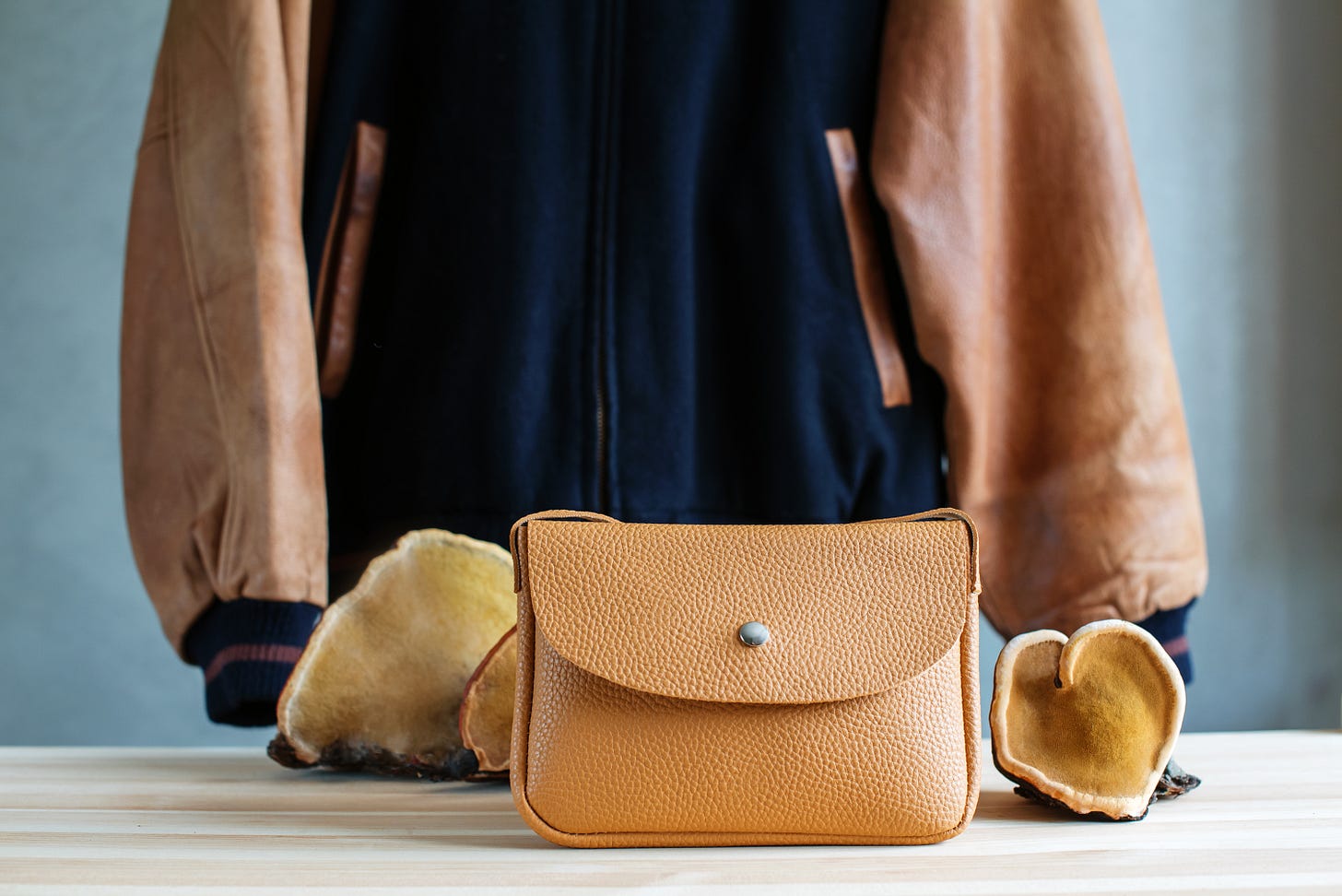The fashion world finds itself at a crossroads, embroiled in a fervent debate on the merits and implications of vegan leather. Sparked by recent discussions on online platforms, this discourse has firmly centered on the environmental impacts of fashion choices, bringing to light the industry's urgent need to align with ethical consumerism and ecological awareness. As the call for sustainability and animal welfare grows louder, the conversation about vegan leather and other alternative materials highlights a significant shift in the fashion sector's priorities. This shift towards more responsible consumption and eco-friendly practices mirrors a broader societal push for sustainability, underlining the pressing necessity for the fashion industry to innovate and adopt more sustainable alternatives.
‘‘In the heart of the fashion industry's evolution lies the vibrant debate on vegan leather, signaling a pivotal shift towards sustainability, ethical consumerism, and environmental stewardship. This conversation is a testament to society's growing demand for responsible practices and greener alternatives.’’
This article delves into the complexities of this debate, exploring how vegan leather has become a symbol of the industry's potential transformation in response to the demands of a more conscientious world.
What is Vegan Leather?
Vegan leather refers to any non-animal material that mimics the look and feel of traditional leather. Contrary to popular belief, it's not a single material. Common types include plastic-based options like polyurethane (PU) and polyvinyl chloride (PVC), as well as plant-based alternatives derived from materials like pineapple leaves, cactus, and cork.
Environmental Impact: A Two-Sided Coin
One of the main arguments against vegan leather is its environmental impact. Critics point to the plastic production process used in many vegan leathers, raising concerns about pollution and its harm to marine life. However, this argument fails to consider the environmental toll of traditional leather production. The leather industry requires significant energy and resources, contributing to deforestation and greenhouse gas emissions associated with cattle farming.
Exploring Sustainable Alternatives
Thankfully, the conversation doesn't end there. Eco-friendly alternatives are emerging in cork leather and cactus leather, both offering promising sustainable options. Additionally, some indigenous communities practice traditional leather production methods with minimal environmental impact.
The Advantages of Vegan Leather
Beyond environmental considerations, vegan leather offers a clear ethical advantage. It eliminates the use of animal products, which can be a major concern for many consumers. Furthermore, the innovation surrounding plant-based alternatives holds immense potential. With advancements, we can expect vegan leather to become more durable, long-lasting, and even biodegradable.
Challenges and Criticisms
Current vegan leather products are not without their shortcomings. Some options lack durability and quality, leading to faster product replacement and increased waste. Concerns exist regarding greenwashing and a lack of industry regulation to ensure sustainable practices.
Moving Forward: Informed Consumers and Industry Progress
The vegan leather debate highlights the need for informed consumer choices and industry efforts towards transparency and sustainability. By understanding the various materials and production methods, consumers can make conscious choices. Meanwhile, the industry can address greenwashing concerns and continue researching and developing truly eco-friendly vegan leather alternatives.
Looking Ahead: A Sustainable Future for Fashion
The vegan leather debate is a positive step towards a more sustainable future for fashion. By acknowledging the challenges and embracing advancements in materials and production processes, both consumers and the industry can help pave the way for a more ethical and environmentally conscious future.
Sources:
Is Vegan Leather better for the environment?: https://ethicalmadeeasy.com/is-vegan-leather-actually-better-for-the-environment/
A Life Cycle Assessment of Polyvinyl Chloride (PVC) and Polyurethane (PU) Leather: https://www.sciencedirect.com/science/article/abs/pii/S0921344916302002
This scientific paper provides a detailed analysis of the environmental impact of both plastic-based vegan leather options, PVC and PU.Sustainable Materials for Fashion: A Review https://www.sciencedirect.com/science/article/pii/S0959652621006107: This research article explores various sustainable materials used in fashion, including plant-based alternatives like those mentioned in the article.
The Future of Leather is Sustainable https://www.vogue.in/fashion/content/is-lab-grown-leather-the-future-for-the-fashion-industry: This article from Vogue Business dives into innovations happening in the sustainable leather industry, including advancements in plant-based and lab-grown leather options.
Visit Our Amazon Store!
All sales of our Vegan Products help promote animal rights worldwide!
General Resources
Books:
Dominion: The Power of Animals in Nature and in Our Imagination by Matthew Scully
Animal Liberation by Peter Singer
Eating Animals by Jonathan Safran Foer
A Billion Hungry Mouths: Feeding the World Without Consuming the Planet by Colin Tudge
Websites and organizations:
Documentaries:
Articles:
"The Case for Animal Rights" by Tom Regan
‘‘Why We Love Dogs, Eat Pigs, and Wear Cows: An Introduction to Carnism’’ by Melanie Joy
‘‘Animal Rights: The Abolitionist Approach’’ by Gary L. Francione
‘‘Fellow Creatures: Our Obligations to the Other Animals’’ by Christine Korsgaard
Seeds of Compassion: Finding Jesus Christ in a Vegan World by Michael Corthell
Receive a single informative article daily at 12:01 AM by email. Explore my homepage with exciting vegan and plant-based news content and delightful and delicious recipes for additional updates. Stay connected to the vegan world and all it has to offer.
Visit The Vegan Project Global our Facebook page for more vegan outreach and education.
Also, visit our new YouTube channel
The information on this vegan/plant-based blog is for general informational purposes only. It is not intended as legal, medical, or professional advice. Readers should consult with appropriate professionals for specific advice tailored to their situation. The blog owner is not responsible for any reliance on the information herein.






We now also have plastic-free vegan leathers, such as Biophilia or Natural Fiber Welding's Mirum. Vegan leather will continue becoming more and more eco-conscious, while killing animals will never be done in a "better" way.